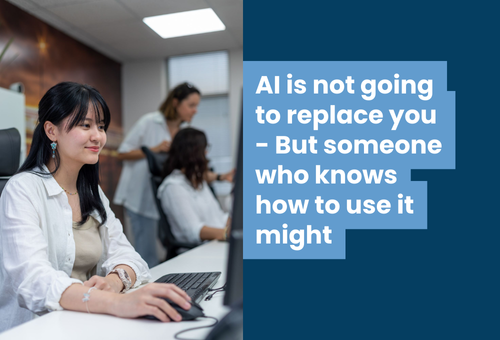The Rise of Generative Engine Optimisation (GEO): Are You Ready for AI Search?
You type a question into Google, but instead of the usual list of blue links, you get a fully formed, AI-generated answer. It’s precise, direct, and—most importantly—it doesn’t require you to click on a website at all. This is the new reality of search, and it’s changing the way businesses get found online.
For years, digital marketers have obsessed over
Search Engine Optimisation (SEO), working tirelessly to rank their websites higher on Google’s results pages. But as AI-powered search engines like Google SGE, ChatGPT, and Perplexity take over, a new form of optimisation is emerging—Generative Engine Optimisation (GEO).
What’s Changing in Search?
The traditional SEO model was simple: Optimise content for keywords, get backlinks, and improve technical performance to rank higher. But AI search engines don’t just rank pages—they generate answers.
Instead of simply listing ten websites for users to explore, AI tools now scan vast amounts of data, synthesise insights, and present a summarised response. While this makes search more efficient for users, it raises a critical question for businesses:
How do you make sure AI-powered search engines recognise and reference your content?
This is where
Generative Engine Optimisation (GEO) comes in.
What is Generative Engine Optimisation (GEO)?
GEO is about ensuring your content is structured in a way that AI-powered search tools can understand, reference, and use when generating responses. If your content isn’t optimised for AI-driven search, it could be left out entirely, making it harder for potential customers to find your business.
The shift is happening fast:
By 2025, over
50% of online discovery is expected to be influenced by AI-generated search results.
How Does GEO Work?
Unlike traditional SEO, which focuses on ranking high in Google’s search results,
GEO is about making your content visible to AI-powered search engines. Here’s how:
1. AI-Optimised Content
AI models prioritise clear, structured, and fact-based content. Instead of keyword stuffing, content needs to be:
✔ Easy to summarise
✔ Well-structured (headings, bullet points, lists)
✔ Written in a conversational yet authoritative tone.
2. Entity-Based SEO
Search engines are shifting from keyword focus to entity recognition. Instead of just ranking based on specific words, AI-powered tools understand relationships between topics, brands, and concepts.
✔ Use structured data (schema markup) to help AI understand your content.
✔ Ensure your business is clearly identified as a subject-matter expert.
3. Conversational Search Optimisation
With the rise of AI chat tools like
ChatGPT, Google's Gemini, and Perplexity, users are asking search engines more detailed,
natural-language questions.
Pro tip:
Creating an FAQ-style content structure improves your chances of appearing in AI-generated responses.
4. AI-Specific Content Formats
AI-powered search engines favour certain content types:
- FAQs and Q&A style content – AI tools love direct, answer-based content.
- Structured knowledge hubs – AI models prioritise well-organised, topic-rich pages.
- Data-driven content –
AI prioritises sources that cite reputable studies and statistics.
Final Thoughts: The Future of AI-Driven Search
The shift toward AI-generated search results isn’t just a trend—it’s the future of how people find information. Businesses that adapt early will thrive, while those that rely solely on traditional SEO may struggle to stay visible.
If your business depends on Google rankings, digital marketing, or organic discovery, it’s time to take Generative Engine Optimisation (GEO) seriously.
Ready to optimise for the future of search?
Contact Captovate today and let’s make your content AI-ready.










